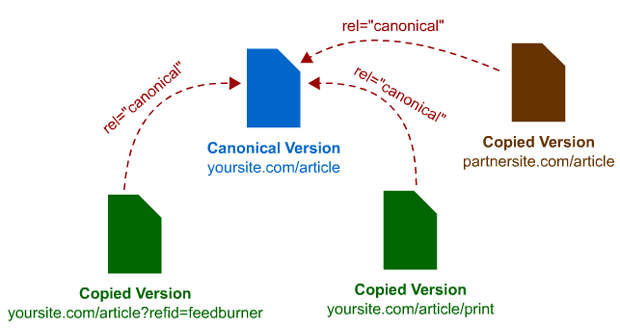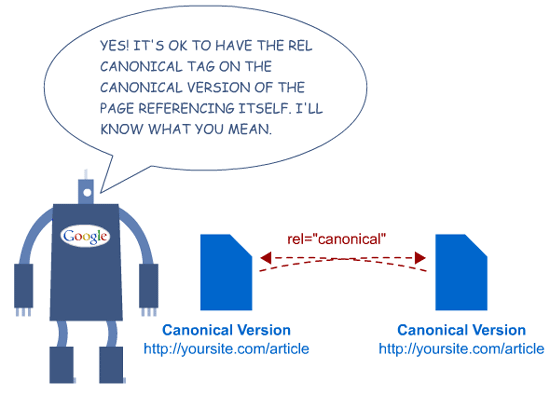
Dispelling a Persistent Rel Canonical Myth
The author's views are entirely their own (excluding the unlikely event of hypnosis) and may not always reflect the views of Moz.
Lately I've been surprised to hear concerns from a number of SEOs that using the canonical URL tag on the canonical version of the page can somehow cause problems. When I've talked to folks about it, there seems to be confusion that only duplicates should use the rel="canonical" specification and the original must remain rel="canonical"-free. This isn't the case.
Learn More:
Canonicalization - What is a canonical tag?
Let's look at a few diagrams to help explain:

This is the standard way rel=canonical is employed. Different versions of a page, whether on your own site, on partner sites, or places you're licensing content (note: this is an update Google launched on Dec. 17th, 2009) can all reference back to the original to help tell the search engines where to find that piece. However, it's also perfectly OK to do this:

Looking through Google's blog post on the subject, this isn't explicitly stated. However, you can see that even the example website, Wikia, employs this practice on the page Google points out. You can also see Googler Maile Ohye answering a comment on this:
@Wade: Yes, it's absolutely okay to have a self-referential rel="canonical". It won't harm the system and additionally, by including a self-reference you better ensure that your mirrors have a rel=”canonical” to you.
Maile's got really good advice here. If you run into situations where third parties are referencing your posts and appending strings of data to the URL, it can be really helpful to have the canonical URL tag on these by default. In fact, we've worked with many companies recently who found it helpful to employ sitewide as a best practice, just to prevent future iterations or less SEO savvy development from reproducing versions of the page that didn't contain the rel=canonical and potentially losing link juice / causing canonicalization issues.
One last piece - it's a really, really good way to make sure Google indexes the http rather than https version of your page (and counts link juice to the proper one). This had historically been a royal pain in the butt for many SEOs, and we've heard enough positive stories now to feel confident recommending it.
Welcome to 2010! Hope everyone had a great holiday break :-)



Comments
Please keep your comments TAGFEE by following the community etiquette
Comments are closed. Got a burning question? Head to our Q&A section to start a new conversation.